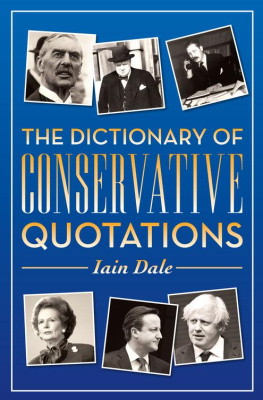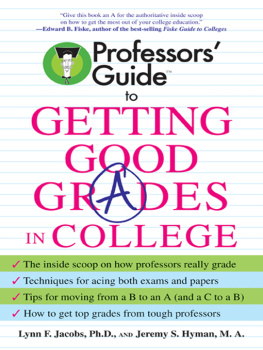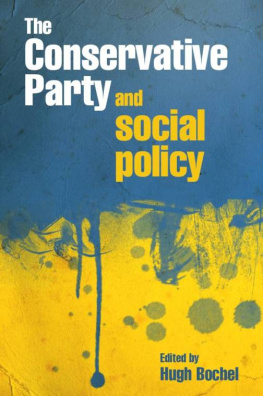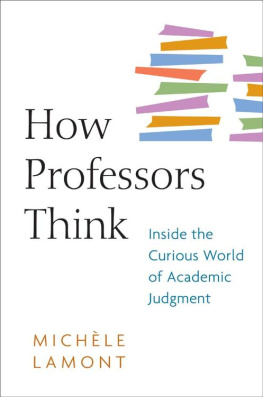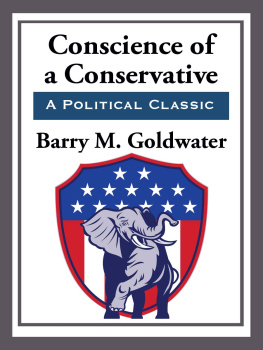Passing on the Right
Passing on the Right
Conservative Professors in the Progressive University

JON A. SHIELDS
JOSHUA M. DUNN SR.


Oxford University Press is a department of the University of Oxford. It furthers the Universitys objective of excellence in research, scholarship, and education by publishing worldwide. Oxford is a registered trade mark of Oxford University Press in the UK and certain other countries.
Published in the United States of America by Oxford University Press
198 Madison Avenue, New York, NY 10016, United States of America.
Oxford University Press 2016
All rights reserved. No part of this publication may be reproduced, stored in a retrieval system, or transmitted, in any form or by any means, without the prior permission in writing of Oxford University Press, or as expressly permitted by law, by license, or under terms agreed with the appropriate reproduction rights organization. Inquiries concerning reproduction outside the scope of the above should be sent to the Rights Department, Oxford University Press, at the address above.
You must not circulate this work in any other form and you must impose this same condition on any acquirer.
Library of Congress Cataloging-in-Publication Data
Names: Shields, Jon A., author. | Dunn Sr., Joshua M., author.
Title: Passing on the right : conservative professors in the progressive university / Jon A. Shields and Joshua M. Dunn Sr.
Description: New York, NY : Oxford University Press, [2016]
Identifiers: LCCN 2015027217 | ISBN 9780199863051 (hardback : alk. paper) | eISBN 9780199860258
Subjects: LCSH: College teachersPolitical activityUnited States. | College teachingPolitical aspectsUnited States. | ConservatismUnited States. | Right and left (Political science)
Classification: LCC LB2331.72 .S55 2016 | DDC 378.1/25dc23 LC record available at http://lccn.loc.gov/2015027217
To my mother, Bonnie, for her love and life itselfJAS
To my children, Joshua, Benjamin, Elizabeth, and Evangeline (aka, Banjo)JMD
Contents
WRITING A BOOK about professors for a largely academic readership is a daunting task. Nearly everyone believes that they are experts on the subject, and not without some justification. Others wonder why anyone would write a book about professors, especially given all the important and less familiar subjects outside our domain. Studying professors, however, is a far less lonely and obscure endeavor than it would have been just a decade ago, thanks to the work of a handful of scholars. They revived interest in a subject that had been nearly dormant ever since Everett Carl Ladd and Seymour Martin Lipset penned their classic, The Divided Academy, in 1975. We therefore owe a special debt to Ethan Fosse, Neil Gross, Daniel Klein, Robert Lichter, Stanley Rothman, Solon Simmons, Christian Smith, April-Kelly Woessner, Matthew Woessner, and George Yancey, among others. These scholars also deepened our understanding of the modern academy in ways that enriched our book immeasurably.
Others read our manuscript in full and offered thoughtful suggestions. They include Gerard Alexander, Brian Balogh, Mark Blitz, Jonathan Imber, Joshua Muravchik, Stephanie Muravchik, Bonnie Shields, Steve Teles, Paul Quirk, and Jonathan Zimmerman. We are also grateful for the insightful comments of three anonymous reviewers at Oxford University Press, as well as the intelligence, cheer, and patience of our editor, Cynthia Read. Thanks as well to our outstanding copy editor, Victoria Danahy, and others who assisted with the production of the book, especially Gina Chung and Sunoj Sankaran.
Fieldwork is a costly enterprise. For this reason we are especially grateful for the generous financial support of the Randolph Foundation, the Earhart Foundation, and the Salvatori Center for the Study of Individual Freedom in the Modern World. Grants from these institutions paid for our travel, transcription services, and sabbatical support. We owe a special debt to Mark Blitz, the director of the Salvatori Center, for supporting our work in myriad ways.
Fieldwork is also taxing on our subjects, of course. And so we thank the scores of professors who gave so generously of their time and patiently waited for our arrival as we navigated unfamiliar cities and universities. Thanks as well to our outstanding research assistants, Kirstyn Jacobs and Clay Spence.
We also thank our friends for providing needed distractions from the book itself. Shields especially thanks Martha Bayles, Zach Courser, Lenny Fukshansky, Mahindan Kanaratnam, Maxwell Porter, and Peter Skerry. Dunn thanks James Null, Daniel DiSalvo, Joseph Postell, Shep Melnick, and Inhan Kim for their helpful conversations on this project and many others. He owes a special thanks to his late mentor, Martha Derthick, for her invaluable support and advice.
And, finally, we thank our families, especially Stephanie and Kelly, for their love and support. They make everything possible.
Passing on the Right
PROGRESSIVES RULE HIGHER education. Their rule is not absolute. But conservatives are scarcer in academia than in just about any other major profession, including the entertainment industry. Progressives dominance is especially impressive in those humanistic fields where politics falls close to the subjects of inquiry. Conservatives are so scarce, in fact, that Marxists outnumber them. While less than 10% of social scientists and humanities professors identify themselves as Republicans, nearly 18% of social scientists regard themselves as Marxists, and 25% of sociologists do, too.
The marginality of conservatives cannot be blamed on the 1960s. Although the academy drifted leftward after the 1960s, progressive dominance is long-standing. When Republican candidate Dwight D. Eisenhower easily won the presidency in 1952, a substantial majority of American professors cast their votes for the Democratic candidate, Adlai Stevenson. And prior to national surveys, scattered evidence suggests that academics stood well to the left of most other Americans. In 1939, for example, hundreds of professors signed a manifesto that expressed faith in Soviet communism. During these years the Communist Party was so successful recruiting academics that it became a source of frustration. One report on American communism noted that there was more rejoicing in [the partys] headquarters over the recruiting of one common laborer than over ten Ph.D.s.
Today scholars argue over the scope and power of leftist radicalism in the professoriate, but none deny the marginality of conservatism. Five major studies with quite different methodological approaches all placed the percentage of Republican professors between 7% and 9% in the social ). Such consistent results across multiple studies constitute what social scientists call a very robust finding.
Table I.1 Five Surveys of Professors Ideology and Partisanship

Measures voting behavior to assess partisanship rather than self-identification and includes only six disciplines.


